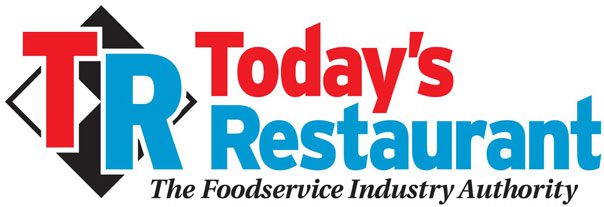
Keep These Tips in Sight as Your Restaurant Rolls with the Punches of COVID-19
By Jessica R. Shraybman
Founder & Managing Partner
Shraybman Law
Unequivocally, restauranteurs and entrepreneurs in the food industry have been among the hardest hit, economically speaking, by the COVID-19 pandemic. The normalcy of customers coming in the doors for a night of dining or even a casual lunch feels like a vision of the distant past. To make matters worse, reopening timelines, guidelines, and regulations at the federal, state, and local levels have felt like a moving target in most parts of the country since March. As much as complete closures and stay-at-home orders have harmed the restaurant industry, reopening has come with fits and starts, presenting a new litany of obstacles for dining establishments to overcome.
Here’s a quick rundown of what most restaurants have been facing this summer in Southeast Florida, and across the nation, due to the pandemic – and some insights from our team of attorneys on how your restaurant business can keep adapting:
The New Normal
Hunkering Down Due to Health Reasons and Capacity Limits
Even if your restaurant is located in a state or county where reopening has begun, in most areas, capacity restrictions are still in place. With 50% or similar stringent dining room occupancy rules established to limit crowds indoors, many restaurants have expressed concern over whether it is even financially feasible to operate within those limitations. While some seized the opportunity to reopen for limited dine-in service, others have decided to simply keep doors closed, either completely or keeping on the skeleton staff necessary to continue pick-up and delivery service.
Still others, from major chains such as Starbucks to locally owned eateries, have chosen to keep indoor dining areas closed, even if not mandated by local governments, in order to slow the spread of the contagion within their communities.
Whether your restaurant has followed this route and remained closed for health reasons, or in order to hedge your bets against profit loss, no doubt it was a tough decision that will have a tremendous impact on your business forecasts and future revenue.
Adapting Your Footprint for Outdoor Seating
In areas of the country such as Miami-Dade County, Florida, where our firm is located, restaurants have been able to reopen – if they have outdoor seating that meets social distance requirements. For restaurants whose footprints did not previously include outdoor areas, this mandate created an opportunity to evolve.
Many establishments began getting the necessary authorizations and permits to use, or increase the use of, their sidewalks, courtyards, and in some cases even parking areas, as outdoor dining space. However, this process is rarely cut-and-dry, even under the most normal of circumstances. Many restaurateurs have now found themselves knee-deep in unknown territory of code regulations (and sometimes, violations) and permitting and land use law just to find a way to stay in business. Others have suffered fines from enforcement or misuse of property in their attempts to adapt. It’s important to consult with your landlord, real estate agent, and attorney before embarking on any such major adaptations of space.
Keeping Staff on Payroll While Staying Afloat
Furthermore, since lockdown orders were first implemented in mid-March, many restaurants have been forced to make significant staff cuts. Even the most creative of restaurants have struggled to keep employees on payroll – even at wages half of which they were accustomed. Some businesses have adopted hybrid pay systems (one café, for example, has been divvying up all revenue amongst the entire team). Others have pooled resources to provide staff with severance or paid leave. A few have even launched public funds through GoFundMe and other similar platforms inviting their communities to step in and provide emergency assistance to wait staff and bartenders.
Many restaurants have wondered where, besides federal programs such as the Paycheck Protection Program or SBA Disaster loans, they can turn for funds, and what their legal obligations are to employees. While options are certainly limited, there are a number of routes to pursue. Make sure to thoroughly evaluate the structure you’re considering before making any firm decisions related to handling your staff and their needs during the pandemic. Again, turning to your trusted advisors is paramount to determine the best course of action and ensure you are staying within legal employment and contractual frameworks.
Facing Extra Expenses When Reopening
Even for restaurants who are by all intents and purposes “reopened” – with or without capacity restrictions – it has become much more expensive to operate in the new normal. New health codes and reopening mandates, plus the safety and perception of patrons, have made it imperative to invest in COVID-approved inventory including masks, gloves, sanitizers, signage (think: at the door, at point of sale, and throughout), as well as the cost of developing or purchasing new training materials and implementing them with staff.
These unplanned expenses, on top of the losses the restaurant industry was already unprepared for, have created additional burdens that are unaccounted for in aid packages and programs thus far, and will continue to hurt their bottom lines into the future. Restaurants will either be forced to raise prices to accommodate these new expenses or continue to bleed profits.
Our Recommendations
As a law firm working with small businesses, many of them restaurants and other brick-and-mortar establishments severely affected by COVID-19, below are a few pointers we have routinely come back to when offering counsel:
Safety Above All Else
When in doubt, always err on the side of being overly safe, overly cautious, and overly protective of the health and safety of your workers and clientele. Follow the local, state, and federal regulations and recommendations and communicate your compliance with these rules clearly to patrons. Have clear signage, enforce the mandated health rules, and diligently track the number of guests inside of your facility at all times.
Judiciously monitor your employees’ health as well. Take their temperatures everyday upon arrival and throughout the day. Have them do a self-symptom check regularly. If you are able, as some employers have begun doing, pay for them to get weekly testing. One restaurant in our community that had vigorously reopened, had to close completely again after learning that a chef tested positive. All of the staff and owners had to be quarantined for an additional 14 days, further slowing the reopening process. No matter how expensive or time-consuming it may seem to take precautions now, losing the trust of your customer base in the long-term is far costlier.
Also bear in mind that restaurants are subject to be fined or even be ordered to shut down for violations and noncompliance of local ordinances, and then must meet even higher standards before being allowed to reopen. One familiar restaurant in Broward County, FL, was fined up to $15k for its COVID-19 violations.
- Adapt Your Facility
Whether you are reopening indoor dining or find yourself in need of creating dining spaces outdoors, remapping and revamping your footprint is essential for success. Keep these other rules of engagement in mind:
- Only allow self-parking (no valet), which may mean you need to lease new parking spaces; alternatively, encourage guests to seek public parking or use a ride-share
- Make sure items such as hand sanitizers, trash cans, paper towel dispensers, and hand dryers are all touchless and automatic to eliminate points-of-contact surfaces
- Provide disposable or touchless “digital” menus to patrons
- Install automatic doors or have a single employee usher guests in and out of the restaurant to eliminate touch points on door handles
- Ensure you place visible floor markings to indicate proper social distancing, and designate waiting areas and traffic flow throughout the restaurant to prevent clustering
- Staff must be properly trained to both follow and enforce facility spacing and traffic flow, and food handlers (such as kitchen staff and servers) must wear masks and gloves at all times
Miami-Dade County, FL, provides a comprehensive checklist for restaurants here.
- Think Long-Term
Even though it feels like 2020 is a never-ending nightmare, it will end, and one day we will return to “normal” dining. These are tough times, and restaurants must be strategic. Know your limits, including how much you can float. Complete thorough cost/benefit analyses before making major investments or decisions. Get clear on what makes most sense for your business, not just now, but long-term, and consult with your financial, legal, and other advisors for help to execute your strategy with confidence.
As much as it feels like “failure,” a temporary closure with a future relaunch may be beneficial for your establishment. Work with your advisors to determine whether closure is your best option in order to avoid bankruptcy or going too deep into the red.
- Think Out of The Box
Last but certainly not least, like any business hit with hard times, innovation is key to your survival. At Shraybman Law, we have been so impressed and astounded by the way food entrepreneurs have reimagined their business models in order to cope with the ongoing crisis.
Not just here in Florida, but across the country, local restaurants and cafes have pivoted to operate as bodegas, providing essentials like eggs, milk, and bread to neighborhood customers. While heavily regulated, some have created “cocktails to go” and hosted virtual demonstrations with bartenders. Others have expanded services and are offering make-at-home-meal kits and virtual cooking classes. One of Shraybman Law’s clients, a restaurant whose prime location is in a food hall, recently purchased a food truck. Once the necessary permits and licenses are in place, the truck will begin taking their delicious menu outdoors and to the streets.
Along with all of these tips, remember that your business is certainly not alone. Your marketing, accounting and legal teams can be your best allies. And, if you don’t have established relationships with these trusted advisors, now may be the perfect time to reach out for help and begin cultivating your advisory community. We’re all in this together, and myself along with my team are confident that this too, shall pass. In the meantime, keep your focus and make the best strategic business decisions you can to set yourself up for a strong recovery – whether now or in the future.
Jessica Shraybman is Founder and Managing Partner of Shraybman Law, Pllc in Miami.





Recent Comments